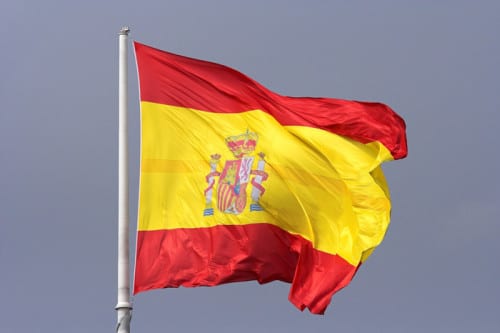OVER the past few years, property raffles have caught people’s attention in Spain and around Europe.
With high real estate prices making it harder for many to own a home, the idea of winning a house with just the purchase of a ticket seems almost too good to be true.
What Is a Property Raffle?
A property raffle is exactly as the name implies. Instead of selling a home the usual way, the owner puts it up as the prize in a lottery-style draw. People can buy tickets for a fixed price, and if their ticket is the lucky one picked, they win the property. For sellers, it’s a fresh and innovative approach to market their homes, and for others to have a look at owning a house for a fraction of the typical cost.
The Legal Side of Things
Running a property raffle in Spain isn’t as easy as just putting up a website and selling tickets. Strict guidelines are in place to ensure that everything is impartial and legal. There are strict rules in place to make sure everything’s fair and above board. Reputable raffle platforms like Reelraffle make sure to fully outline requirements for their draws so that everyone is aware that they are participating in a legitimate exercise, fully aware of any applicable terms and conditions.
Since property raffles are subject to gambling laws in Spain, organisers must obtain formal authorisation, typically from the local government. If they neglect this stage, they risk severe penalties or even face criminal charges. They also have to be upfront from the start about important things like how many tickets are being sold, how people can enter the draw, and what happens if they don’t sell enough tickets.
Some property raffles have been cancelled in the past simply because they couldn’t sell enough tickets to cover the value of the property and associated costs.
How the Sales Process Works
Buying a ticket in a property raffle is usually straightforward. After verifying that the raffle is legitimate and complies with the Spanish Gambling Law 13/2011, participants purchase their tickets online for a small fee, ranging from €2 – €10 for modest apartments, €5 – €20 for mid-range villas, and €10 – €50 for luxury properties.
Once all tickets are sold or the deadline is reached, the organisers typically hold a public draw. Some companies take things a step further by live-streaming the draw, giving everyone a front-row seat, and keeping the whole process as transparent as possible.
It’s also good to know that if a raffle doesn’t hit its minimum ticket sales, organisers typically have two options: they either refund everyone or offer a cash prize instead, depending on what was laid out in the original terms and conditions.
The Draw: The Selection Process for Winners
The draw is usually the most exciting part, it’s when one lucky ticket holder finds out they’ve won a new home. The draw occurs after ticket sales have ended, and a notary or other legal representative is frequently present to ensure that everything is fair. The person holding the ticket, which is chosen at random, is the new owner of the property.
In October 2024, the Spanish TV show El Hormiguero awarded a €300,000 apartment in Torrevieja to Janill Marie Lacruz Romero. Over 281,000 entries were received, and the draw was conducted under notary supervision. All taxes and fees were covered, allowing the winner to enjoy the property without additional costs.
To keep things interesting and give more people a chance to win anything, some raffles often include extra, smaller prizes. Everything must be accurately documented, including the whole list of participants and the precise method used to select the winners, regardless of the number of prizes up for grabs.
Pros of Raffling Your Home
- It’s an alternative way to sell when the property market is slow.
- You might end up making a lot more than the asking price.
- You won’t have to deal with the hassle of estate agents.
- The excitement around house raffles makes them a great chance to go viral. This can be a huge advantage for sellers looking to boost interest and increase ticket sales.
Cons of Raffling Your Home
- The rules around house raffles can be complicated, and you could end up with a big fine if things aren’t done correctly.
- You’ll need to hire a solicitor to make sure everything is legal.
- You have to sell enough tickets to make it worth your while. Higher ticket prices can be tough to sell, and with so many people entering, the chances of winning are low, which might turn off potential buyers.
Property raffles in Spain offer a creative alternative for both sellers and buyers. When organised correctly and transparently, they can turn the dream of owning a home into a reality, all for the price of a single ticket.
It’s also really important to make sure any raffle you enter is legitimate and properly authorised. Ensure you read through every raffle and stick to reputable platforms that prioritise transparency and participant safety. And if you’re lucky, you could have a new home with just one ticket.







